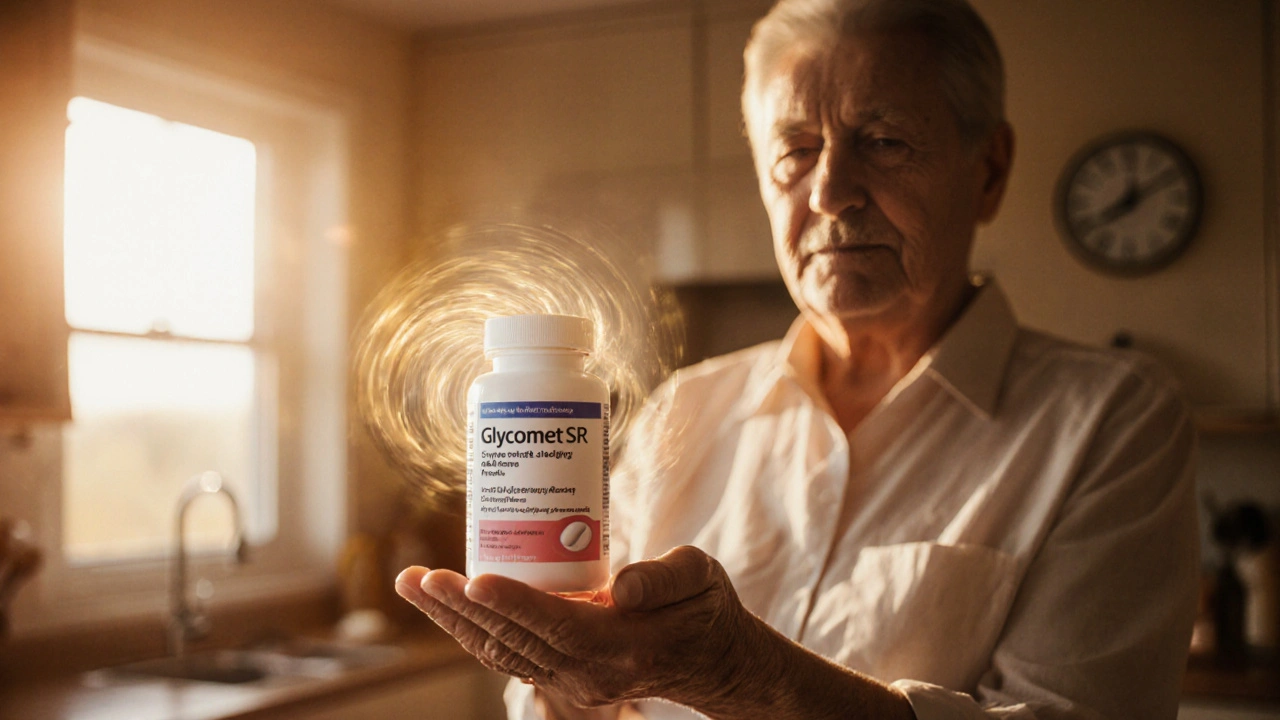A comprehensive comparison of Glycomet SR (extended‑release metformin) with other metformin forms and newer diabetes drugs, covering efficacy, side‑effects, cost, and when to choose each option.
Metformin Alternatives: What You Can Use Instead
If metformin isn’t doing the trick or gives you side effects, you’re not stuck. There are several other drugs that lower blood sugar nicely and many work in different ways. Below we break down the most common choices so you can see what fits your life.
Common Prescription Options
Sulfonylureas (like glipizide or glyburide) push the pancreas to release more insulin. They work fast, cost less, but can cause low blood sugar if you skip meals. If you need a quick fix and your doctor watches your levels closely, they’re worth a look.
SGLT2 inhibitors (for example, empagliflozin or dapagliflozin) tell the kidneys to dump extra glucose in the urine. They help with weight loss and lower blood pressure too. Watch out for urinary infections; staying hydrated helps prevent that.
GLP‑1 receptor agonists (such as liraglutide or semaglutide) act like a gut hormone, boosting insulin after meals and slowing digestion. They’re great if you want to lose weight, but the injections can feel odd at first. Some people notice mild nausea that fades.
DPP‑4 inhibitors (like sitagliptin or linagliptin) keep the same gut hormone around longer, nudging insulin release without big side effects. They’re a gentle option if you dislike injections and want a pill.
Taöliden (a newer class called TZDs, e.g., pioglitazone) makes your body use insulin better. It’s effective but can cause fluid retention, so it isn’t right for everyone.
When to Switch from Metformin
Ask yourself a few quick questions: Are you still seeing high A1C numbers? Do you get stomach upset or vitamin B12 loss? Is your doctor suggesting another drug because of kidney changes?
If any answer is yes, bring it up at your next visit. Your provider will look at your overall health—heart disease risk, weight goals, and kidney function—to pick the best backup.
Often doctors start with a second pill while keeping metformin on board (dual therapy). That can smooth the transition and keep blood sugar stable.
Don’t forget lifestyle tweaks. Even the best drug works harder when you pair it with regular walks, balanced meals, and steady sleep. Small changes add up and may let you stay on a lower dose.
Bottom line: You have options beyond metformin, each with its own perks and quirks. Talk to your doctor, compare costs, and choose the one that matches your daily routine.
Explore the top five alternatives to Metformin, a commonly prescribed medication for type 2 diabetes. Each alternative offers different mechanisms for managing blood sugar levels, such as Precose with its carbohydrate digestion delay and Ozempic's weekly injection convenience. Consider the benefits and potential drawbacks of options like Januvia and Jardiance, noting factors like dosing frequency and side effects. This insightful comparison can help individuals make informed decisions about their diabetes treatment plan.


